Success Stories
Alex Francette
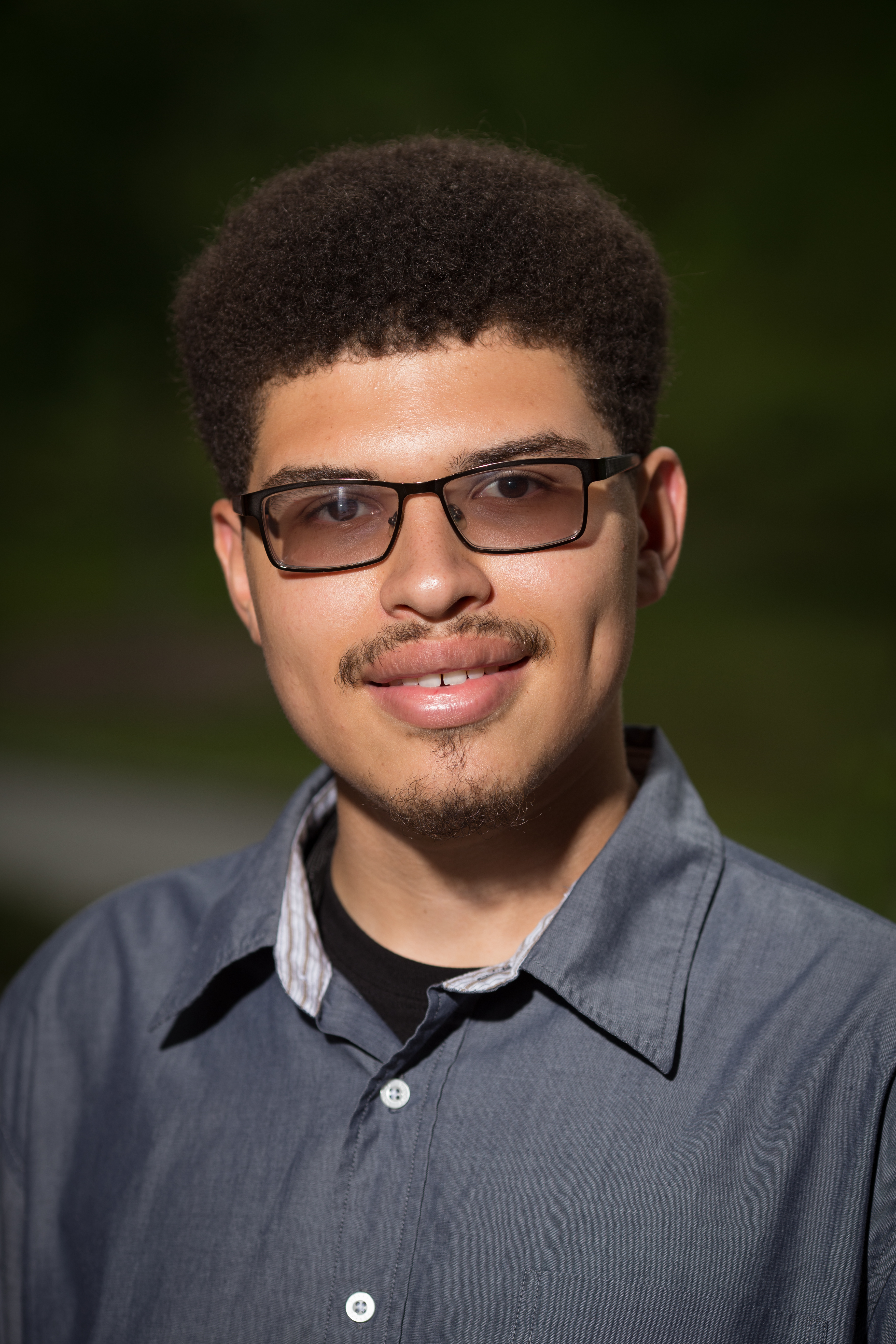 Alex Francette is a 2018 Clarion University graduate with majors in molecular biology/biotechnology
and biochemistry.
Alex Francette is a 2018 Clarion University graduate with majors in molecular biology/biotechnology
and biochemistry.
His passion for the field of biology was inflamed during high school as a result of enrollment into a dual-education undergraduate biology course. Francette ultimately chose to attend Clarion University to pursue this passion after attending the university's Summer Academy.
"I talked with a professor in the Science and Technology Center and as he described to me the research the faculty conducted at Clarion... I knew I wanted to know more," Francette said.
After this encounter, Francette applied to Clarion University and was awarded a full four-year scholarship for his academic merit. While attending Clarion, Francette was a member of the Honors Program, served as treasurer and president of the Translational Research/Medicine Club, and wrote for the Molecular Biology Journal Club.
In addition, Francette worked and has continued to work alongside his research advisor, Dr. Doug Smith, in a research project focused on examining blood stem cells.
Prior to his senior year at Clarion, Francette procured a prestigious 10-week internship with the Cold Spring Harbor Laboratory in Long Island, New York. The program equipped Alex with experience using techniques attributed to genetic engineering, single molecule technologies, epigenetics, computational biology, and many other biologically-related fields.
Since graduation, Francette has been enrolled in a molecular cell and developmental biology Ph.D. program at the University of Pittsburgh, where he plans to finish his graduate degree in an accelerated six years.
He credits his successes to the relentless support and advice of Clarion University's staff and to the overwhelming opportunities he has received throughout his undergraduate education.
To current and future students, he advises "to learn your own strengths and weaknesses and work with or around them. Above all, reach out for help early and often."
Hannah McELrath
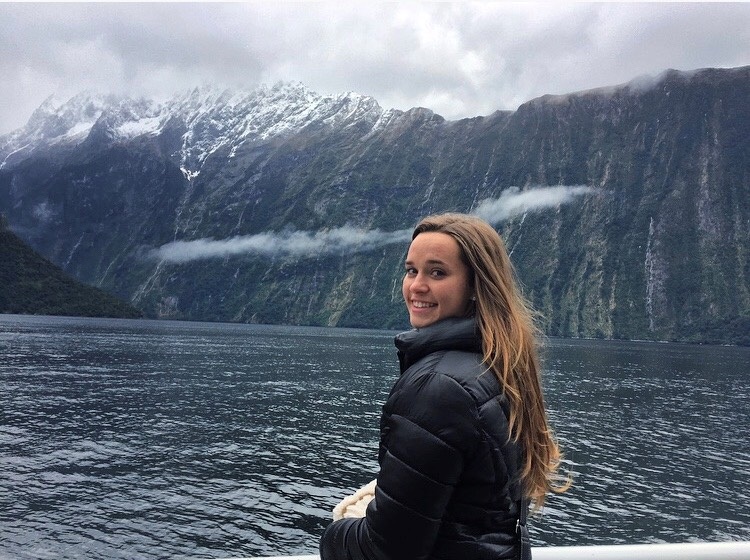 I'm a junior at Clarion University studying environmental biology. I'm also president
of the Clarion Chapter Wildlife Society, where I've been a member since 2016, and
a member of Clarion's Green Team which is dedicated to boosting campus recycling.
I'm a junior at Clarion University studying environmental biology. I'm also president
of the Clarion Chapter Wildlife Society, where I've been a member since 2016, and
a member of Clarion's Green Team which is dedicated to boosting campus recycling.
In addition, I'm part of CRU- a campus-based Christian organization- as a co-leader for the women's ministry. I'm a sorority member for Phi Eta Sigma, a student of the Honor Society, and work for the National Society of Leadership and Success.
I've become involved in several research projects, alongside fellow students and faculty, devoted to analyzing and investigating problems and intricacies of wildlife in Clarion's forests and surrounding areas.
By studying abroad in New Zealand in the early fall before my sophomore year, I earned six academic credits through courses in International Business and Earth Science. I found the entire experience to be enriching and humbling. I felt challenged to go a bit outside of my environmental biology courses, but it gave me an advantage over my peers.
I enjoyed getting the opportunity to learn from New Zealand's agriculture, topography, and the area's indigenous Maori population. I was able to observe the environmentally conscious country's practices in sustainability of agriculture and wildlife.
I hope to take the knowledge from my time in New Zealand to strive to make the U.S. as environmentally aware as New Zealand, whether that be on campus or through my career one day. I will also encourage everyone to travel somewhere, experience new things, and reach beyond their comfort zone because that is how you will find yourself and learn the most.
While my future plans remain fluid at this point, I know that I will never cease to inform others of environmental issues and ways to remain conscious of their interactions with the natural world. I will continue to share my faith with others, showing nature as God's glory.
Kinsey Laninga
I am a spring 2018 graduate of Clarion University with a biology pre-med major. I
was involved as a biology student volunteer for Clarion University, a position that
has allowed me to communicate and mentor high school students in areas related to
college adjustment, the biology field, and Clarion University in general.
I'm continuing my studies at the Lake Erie College of Osteopathic Medicine, where I intend to graduate in the class of 2022. My decision to attend medical school was fueled not only by my love of science and helping people, but my participation in a LECOM Affiliation Program, which also solidified my placement.
I took part in the LECOM Affiliation Program over Summer 2015, during which time I was about to enter my sophomore year at the university. This program allowed me to take the necessary exams, pre-medical courses, and be selected for LECOM entrance upon completion of the requirements beforehand.
I credit my academic advisor, Dr. Scott, with helping me to apply and be admitted into LECOM's Affiliation Program. Dr. Scott also increased my appreciation for osteopathic medicine as we were involved in faculty-student research together; my research group was awarded first place in cellular/molecular biology achievements two years in a row.
Dr. Scott also introduced me into multiple meetings of the Commonwealth of Pennsylvania University Biologists Association- a network of students, biology educators, and professionals throughout biology-related fields. The networking and major-related exploration I underwent while at the university proved invaluable resources, as they led me to pursue my medical profession at LECOM and work toward my doctoral degree.
ZACHARY SELKER
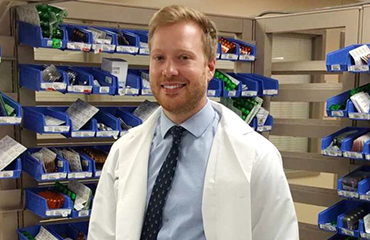
As a high school senior with my eyes set on a career in pharmacy, Clarion University seemed like the perfect fit. A university with a strong background in biology and pre-professional programs, coupled with an affiliation agreement with the Lake Erie College of Osteopathic Medicine (LECOM), I knew Clarion would provide me with a multitude of opportunities.
Clarion’s tremendous faculty, namely Dr. Doug Smith and advisor Larry Bering, assisted in navigating the challenging path to my ultimate goal, admission to the LECOM School of Pharmacy. Not only did they impart knowledge needed to prepare me for a doctoral level program, but also an inspiration for achievement that I have carried with me long past my time at Clarion. Following completion of the initial two-year phase of the Clarion-LECOM affiliation agreement, I transitioned to the Lake Erie College of Osteopathic Medicine School of Pharmacy in the autumn of 2012, ultimately earning my Doctor of Pharmacy (Pharm D.) in May 2015.
Upon graduation I accepted a position as a staff pharmacist at Affinity Medical Center in Massillon, Ohio, and have recently been promoted to the role of clinical pharmacist. As a clinical pharmacist, I collaborate with physicians during patient rounds, monitor drug levels for their therapeutic effects and assist providers in optimizing a patient’s medication therapy. I am also the leader of our antimicrobial stewardship team, which works to ensure the proper use of antibiotics at our facility and prevent antimicrobial resistance. The education I received at Clarion, specifically through the chemistry and biology programs, no doubt empowered me to succeed in an accelerated doctoral program.
The foundational knowledge acquired at Clarion, and most notably, the inspiration for continued education and achievement from Dr. Doug Smith, have shaped the medical professional I am today. I truly believe Clarion to be at the forefront in preparing students for successful careers in healthcare.
Tony Kumetis
I am an environmental biology major at Clarion. I have always been interested in the
environment, and was always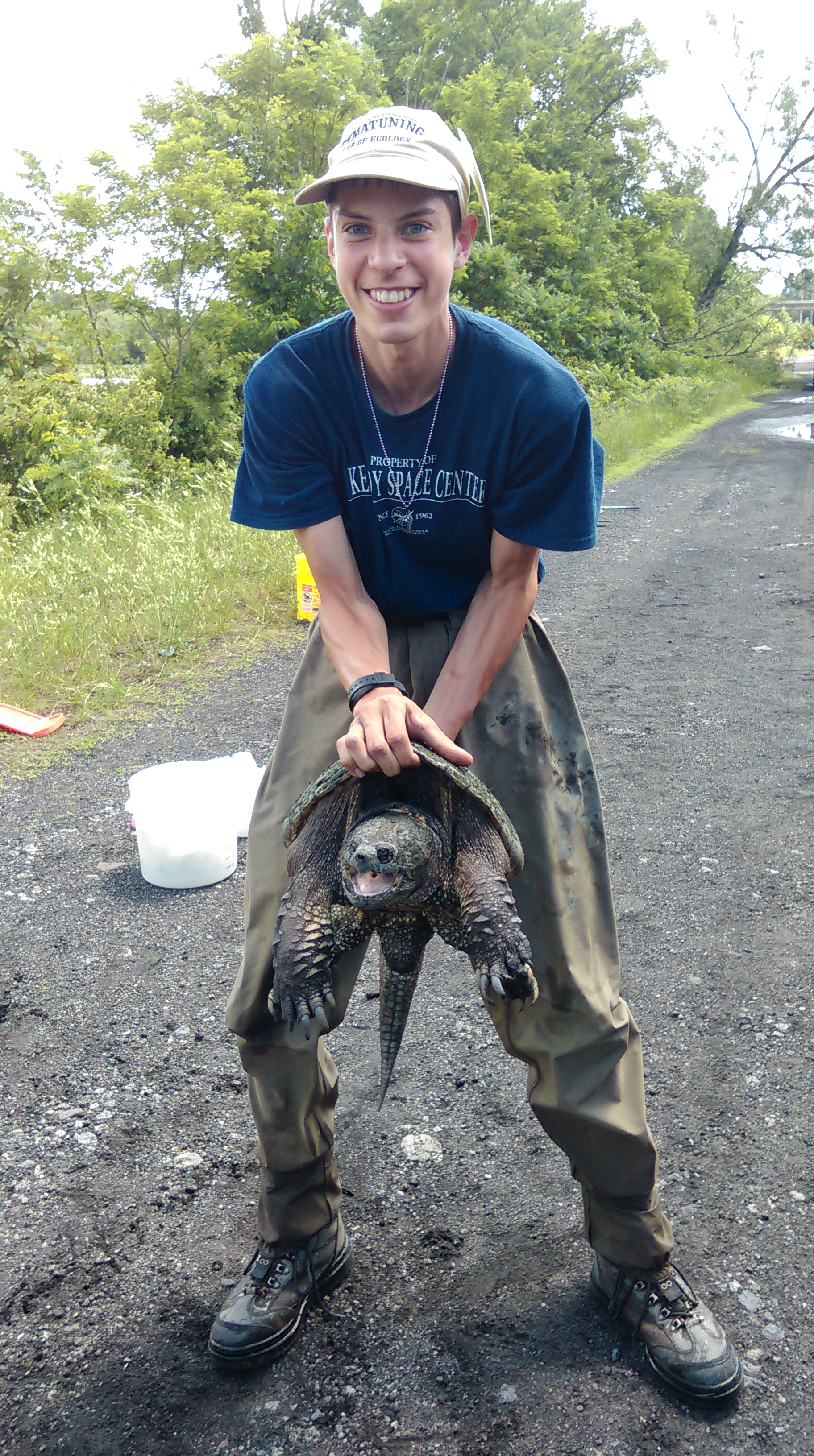 playing in the woods and splashing in the creeks as a child. I guess that I chose
to be an environmental biology major because I wanted to protect what I grew up in.
Part of my reasoning for coming to Clarion was the possibility to work on undergraduate
research. My focus of my research is aquatic entomology, or the study of aquatic insects.
playing in the woods and splashing in the creeks as a child. I guess that I chose
to be an environmental biology major because I wanted to protect what I grew up in.
Part of my reasoning for coming to Clarion was the possibility to work on undergraduate
research. My focus of my research is aquatic entomology, or the study of aquatic insects.
Currently, I am preparing for an internship with the National Audubon Institute's Butterfly Garden and Insectarium in New Orleans, where I will be one of five interns who will be making presentations and helping visitors. One of the main reasons that I got this internship was that I had experience in research, and I honestly don't think I would have had a chance for this internship if I had gone anywhere else for my education.
For anybody thinking about coming to Clarion, I highly advise getting involved in research, and doing so early. Sometimes, the first lab you join just doesn't work, and it may take a few tries to find the right lab for you. Not only does it help you find people interested in the same things as you are, but it is a lot of fun at the same time.
Logan Chernicky
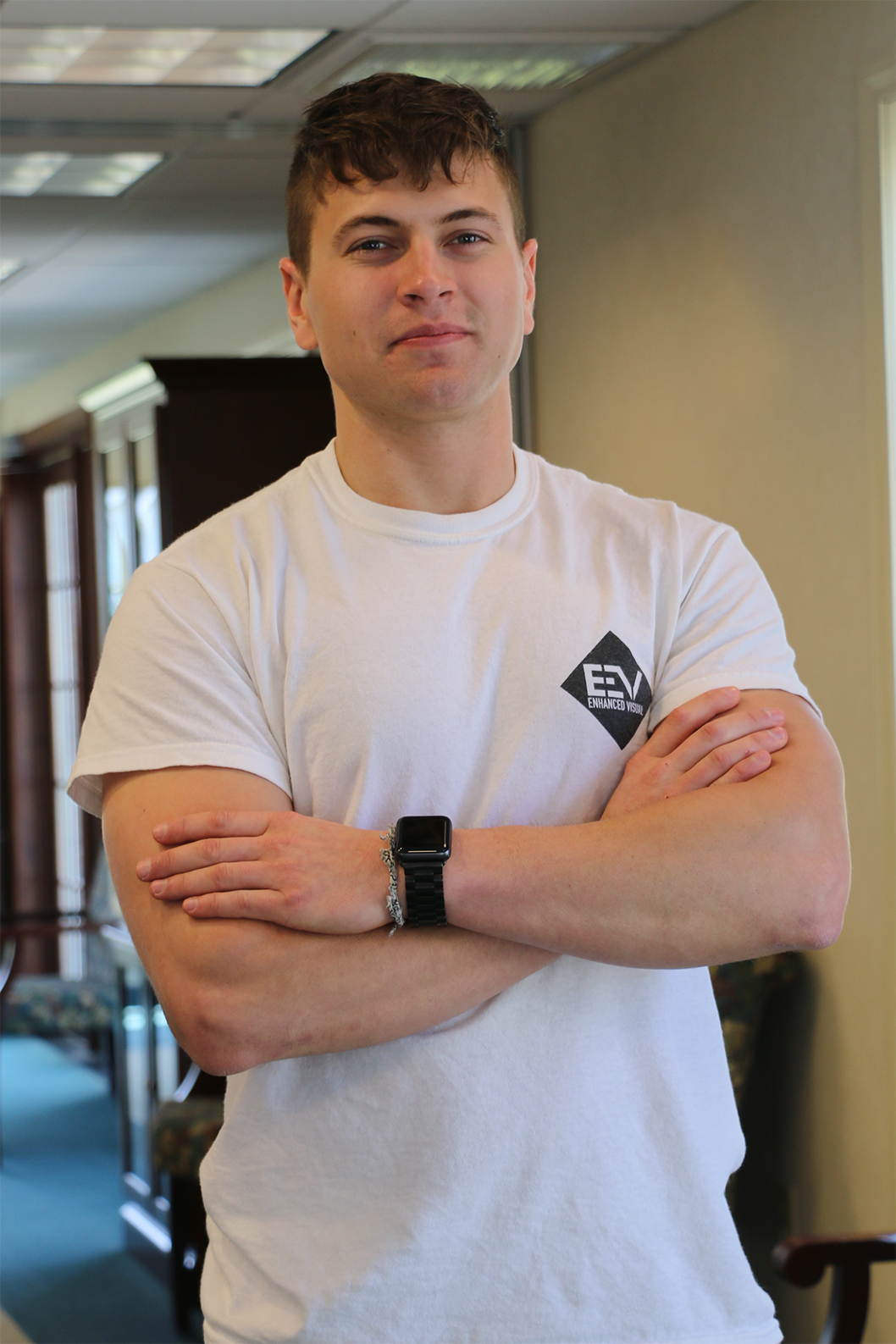 I originally started my schooling at IUP to obtain a bachelor's degree in geoscience.
I then transferred to Clarion my junior year. I will graduate this May with a Bachelor
of Science degree in geoscience, a Bachelor of Science degree in environmental geoscience,
minor in geography, and an Oil/Gas Paralegal Certificate. I originally planned on
getting into the oil and gas field. While recovering now, halfway through my schooling,
the industry went into a slump so I began looking for alternative fields of work.
I didn't switch my major, only added a degree, minor, and certificate.
I originally started my schooling at IUP to obtain a bachelor's degree in geoscience.
I then transferred to Clarion my junior year. I will graduate this May with a Bachelor
of Science degree in geoscience, a Bachelor of Science degree in environmental geoscience,
minor in geography, and an Oil/Gas Paralegal Certificate. I originally planned on
getting into the oil and gas field. While recovering now, halfway through my schooling,
the industry went into a slump so I began looking for alternative fields of work.
I didn't switch my major, only added a degree, minor, and certificate.
I use my education from Clarion consistently. I've taken knowledge learned from an array of classes and applied it in different ways. I wouldn't say it's about a single degree. It's about applying all of your studies to real world situations and connecting the dots to reach your goal.
I wasn't a business major so I started reading and doing research on my own, hoping something would materialize out of it. I decided to buy my first drone just to take pictures as a side hustle because I didn't notice anyone else doing it, that's when I realized just how advanced these machines were getting. I used to work in the Marcellus Shale gas field and in the construction industry. I saw a lot of potential for industrial applications. I was able to make sense of the data I was generating from what I learned in Dr. Yasser's Geographic Information Systems classes and later in Dr. Kazars Remote Sensing class. A lot of my other classes helped me understand how things worked in regards to science and business, as well.
My business, Enhanced Visual, focuses on integrating and developing unmanned aerial systems. Our mission is to educate, guide and collaborate with companies across industries to cut costs and increase efficiency by leveraging drone technology. We provide our own pilots and specialized services but also offer consulting and training services by navigating hardware, software, and FAA regulations.
After forming the business in the spring of 2017, I honestly didn't want to complete my final year of school. I wanted to continue to develop my business full-time but I'm glad I decided to finish this year. It's hard to attribute my success to one attribute. Tracy Reinsel at the SBDC, campus faculty, and school resources have all helped immensely. Not to mention, I wouldn't have gotten the opportunity to compete in the business competition if I had not finished school.
I have been proactively preparing and developing my services the past two semesters but I am looking forward to working on Enhanced Visual full-time after graduation.
Kurt Regester, Ph.D.
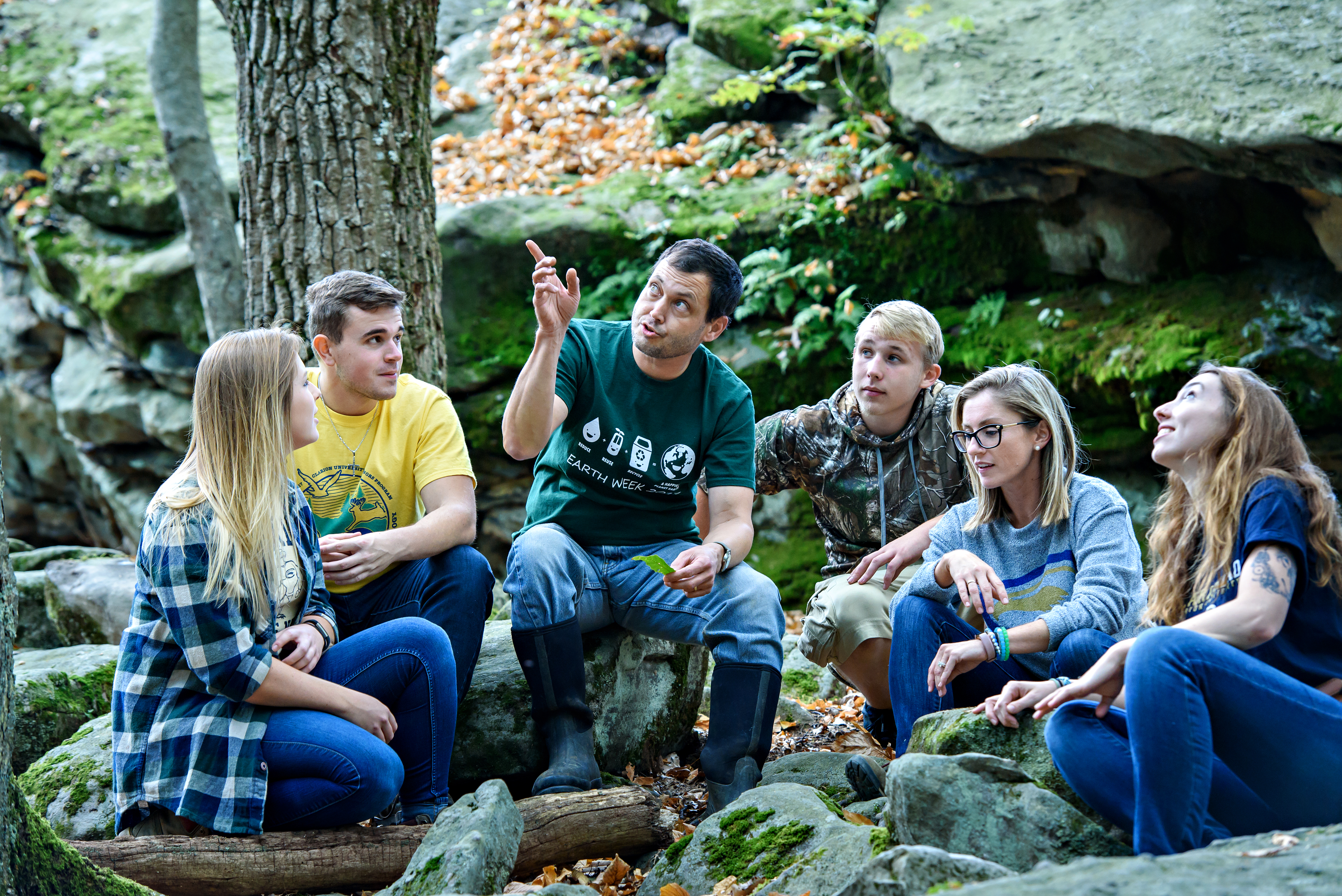 Kurt Regester, Ph.D., is a Clarion University professor of biology, a position he
has held for 11 years.
Kurt Regester, Ph.D., is a Clarion University professor of biology, a position he
has held for 11 years.
Regester teaches within the fields of biology, wildlife ecology, and ornithology (bird studies), in addition to teaching a summer course through the University of Pittsburgh in herpetology (the study of amphibians and reptiles).
Regester grew up in Knox, attending Keystone High School before coming to Clarion University to obtain his undergraduate degree in biology in 1990. Regester always knew that biology was the right field for him and actively participated in the Tri Beta Biology Honor Society.
In the time between his undergraduate and graduate career, Regester worked in various locations as a wildlife educator and trainer for zoos, museums, and even as a bird trainer for SeaWorld in Aurora, Ohio. This early experience with bird training has inspired Regester to become a falconer, a hobby which he hopes to begin before his upcoming birthday. He is hoping to gain the proper permits and safety training to begin this passion.
At the moment, his passion for research has his attention and time, but he admits that "field work is the fun part of my job," and something in which he loves to involve students. He believes students should get involved in the community and form relationships with peers and professors while in college. He encourages students to go above and beyond to be part of research projects and other engagements on campus.
Regester has worked alongside sophomores, juniors, and seniors to conduct local projects, such as observing and sampling vernal pools, small ponds that dry sporadically but refill to accommodate wildlife. This particular project has been funded through a Pennsylvania state grant for three consecutive years, in addition to multiple other grant-based funds that Regester is using to supplement his projects with wildlife.
Regester has published various scholarly articles and has even co-written scholarly articles with research students. When he is not at work or completing a field project, his free time is devoted to his family and to his self-proclaimed gentleman's farm, which currently only carries chickens and smaller animals.
This love of smaller farm animals has also been carried into the classroom, as Regester allows his students to train chickens throughout the semester for an American Ninja Chicken obstacle course. This quirky classroom practice is based off of the television show "American Ninja Warrior," where athletes compete to pass a timed obstacle and strength course for a cash prize. No chickens are harmed during the training, as they are lovingly taken to Regester's farm after the class' ending.
Christian Schill
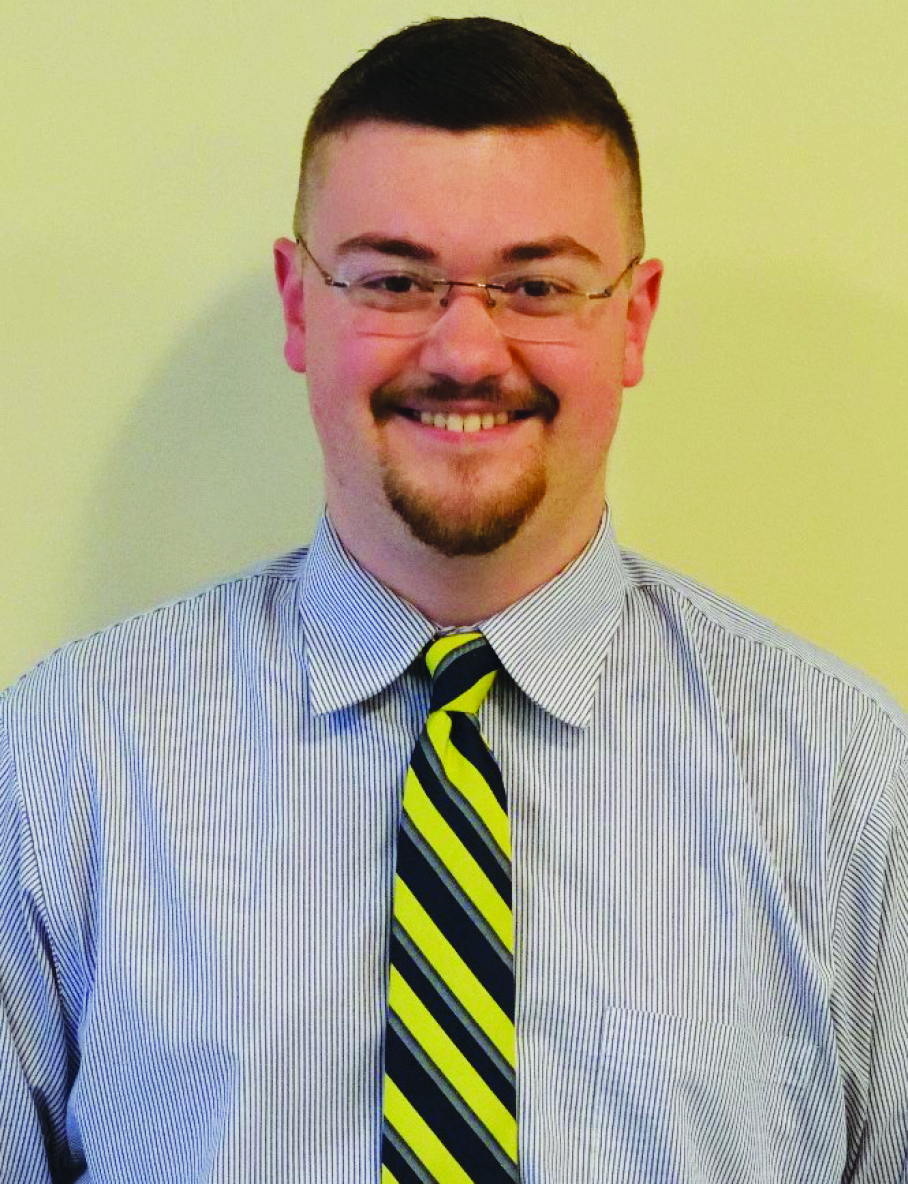 Christian Schill, from Clarion, is a major in molecular biology and biotechnology
with a minor in chemistry and a certificate in Opioid Treatment Specialist.
Christian Schill, from Clarion, is a major in molecular biology and biotechnology
with a minor in chemistry and a certificate in Opioid Treatment Specialist.
Upon graduation, Christian will receive a Bachelor in Science degree. While pursuing his undergraduate degree, Schill attended the Commonwealth of Pennsylvania University Biologists annual Conference and earned awards in the student presentations in cell and molecular biology research: first place in 2017 and second place in 2018. After graduation, he will begin the medical doctor program at the Lewis Katz School of Medicine at Temple University, where he will be one of 30 students studying at the St. Luke's University Hospital Campus.
He plans to practice surgical or medical neurology and pursue clinical research into neurodegenerative diseases.
Ronald "RJ" Bouch
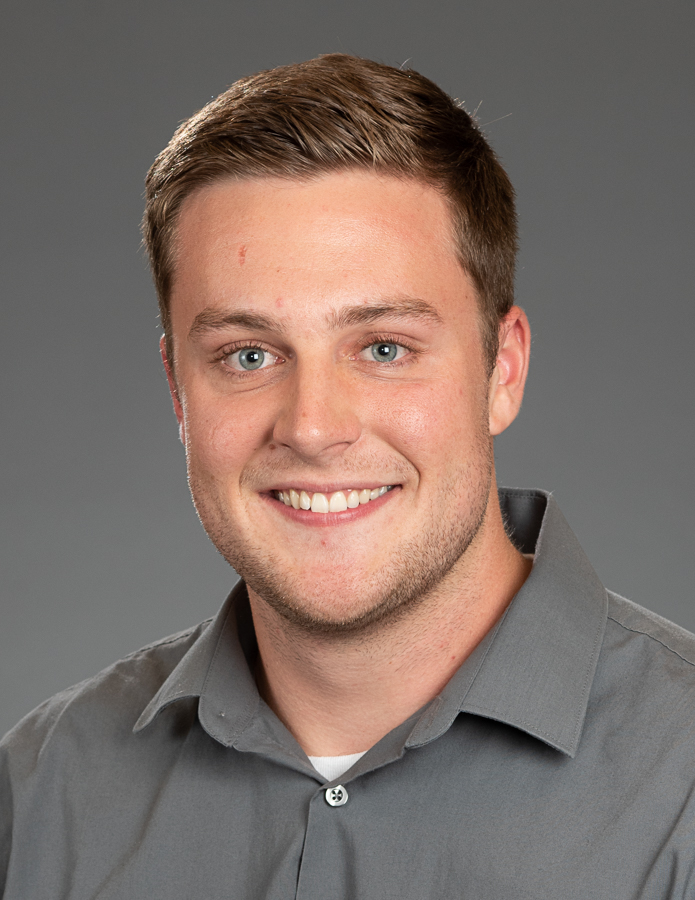 Earning a degree in my program (BS Molecular Biology/Biotechnology) was so much more
than a knowledge-based degree. The molecular program taught me real life skills and
techniques that go directly to the bedside or the lab bench. For me, I went into research
after graduating in May of 2019, attending Wake Forest School of Medicine in their
Cellular and Molecular Biosciences Ph.D. program. At Wake Forest, I am having an eye-opening
experience regarding just how well Clarion has prepared me for this next step, both
in the classroom and the research laboratory. Having interest in translational medicine
and therapeutics, I felt the molecular biology/biotechnology program was the best
fit for me and I quickly found that my program choice was a great one.
Earning a degree in my program (BS Molecular Biology/Biotechnology) was so much more
than a knowledge-based degree. The molecular program taught me real life skills and
techniques that go directly to the bedside or the lab bench. For me, I went into research
after graduating in May of 2019, attending Wake Forest School of Medicine in their
Cellular and Molecular Biosciences Ph.D. program. At Wake Forest, I am having an eye-opening
experience regarding just how well Clarion has prepared me for this next step, both
in the classroom and the research laboratory. Having interest in translational medicine
and therapeutics, I felt the molecular biology/biotechnology program was the best
fit for me and I quickly found that my program choice was a great one.
By far, the biggest factor in my successful undergraduate career at Clarion University was the independent research opportunities and the faculty research advisors. My main research advisor throughout my four years at Clarion was Dr. Doug Smith who advised and taught me and created the driven scientist I am today. His passion for science is contagious (almost more contagious than his laugh) and he spends all of his efforts toward creating a reliable next generation of physicians and researchers. Later, I began research studies under Dr. Eric Lewis who also played a large role in my research interests and skill set development. Outside of the lab, Drs. Natasha Dias and Helen Hampikian had also been more than just professors, but also mentors. They had shown tremendous dedication to their students' success while maintaining a personal relationship with all of their students — all while spreading their enthusiasm for science in the class room.
Achieving my Ph.D. was always an interest but it wasn't until going into my third year at Clarion that I had committed to it. The faculty had worked extensively with me to ensure this was the right decision and it seemed they had known me better than I knew myself as they all agreed that I belonged in the lab.
Besides research, I was heavily involved in Translational Medical Research Club and Beta Beta Beta National Biological Honor Society, which focused on communicating our research/current scientific topics to the public and community outreach, respectively. I had also been a freshman mentor for two classes of incoming freshmen through Biology Peer Mentors where I had met with assigned freshmen mentees to guide them through the hard college transition everyone can remember during their first college semester. My officership in these clubs had given me an array of leadership and mentor skills, which are universal.
Collectively, the Clarion University Biology Department has equipped me with a unique technical skillset as well as personal skills to overcome some of the challenges in my field and to lead me to a brighter, more successful future.
Faith Forry
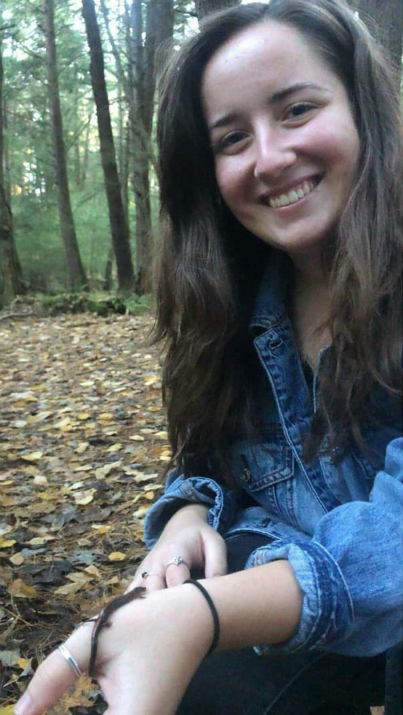 I switched to the world of biology after my first semester. As a kid, you could find
me playing with the bugs or catching the toads in my backyard. As a junior environmental
biology major, I treasure the opportunities and hands-on experiences this major has
provided me. It was important to me to find a major that would be flexible and open
doors to a plethora of careers.
I switched to the world of biology after my first semester. As a kid, you could find
me playing with the bugs or catching the toads in my backyard. As a junior environmental
biology major, I treasure the opportunities and hands-on experiences this major has
provided me. It was important to me to find a major that would be flexible and open
doors to a plethora of careers.
Under Dr. Kurt Regester's guidance, in collaboration with local biology teacher, Kurt Crosbie, and with funding from the Foundation Community Fellows grant, I established an educational wildlife exhibit in Foxburg. To begin, I curated over 30 taxidermy specimens from the biology department's collection. The species were divided into ecological zones, transitioning from aquatic to riparian to forest. The goal of this exhibit is to educate locals and visitors on the diverse riparian ecology of the Allegheny River. This project allowed me to research local wildlife, furthering my knowledge beyond the classroom. This process taught me how to pay attention to detail, write effectively, work creatively, manage my time, and collaborate with others. Furthermore, I was able to marry my love of biology with outreach and education.
Clarion University's Biology Department as a whole is incredible at providing invaluable opportunities to students who actively seek them. Specifically, Regester has played an instrumental role in my educational experience here at Clarion. Thanks to Regester's dedication to work with motivated students and help them succeed, I was given the opportunity to establish this exhibit.
As a member of Clarion's Honors Program, I was afforded the opportunity to be an undergraduate assistant during Summer Academy. This week-long biology camp was a rewarding experience that allowed me to mentor high school students with field work and research development. Currently, I am the secretary of Clarion University's Student Chapter of the Wildlife Society for the 2019-20 academic year. Our club provides students with opportunities to interact with a variety of wildlife, like-minded peers, and professionals in wildlife-related fields. I enjoy my position as secretary because I get to frequently interact with club members and help plan exciting events.
During my time at Clarion University, I have been grateful to be a part of so many rich experiences. I look forward to further developing the Foxburg exhibit, as well as pursuing other projects. Currently, I am beginning novel research with Regester. I am working on a skeletochronological study using toe-clips of the Eastern Hellbender, Pennsylvania's state amphibian. All of these experiences, beyond just time in the classroom, are fostering my love of biology and brightening my future in the field.
Alexis Robison
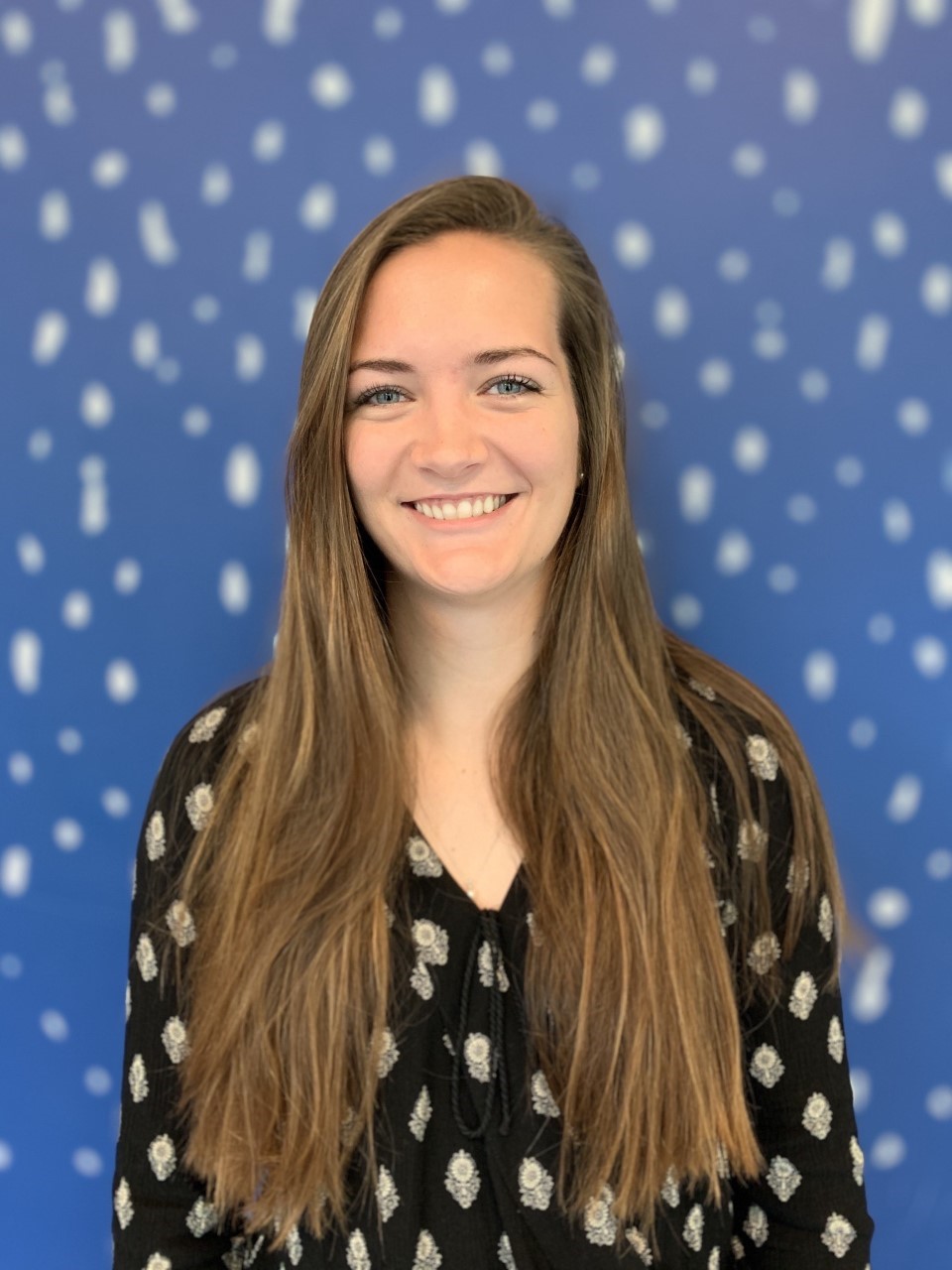 I am a senior double-majoring in Environmental Biology and Environmental Geoscience,
with minors in Geology and Geography. I have always had a love for the outdoors and
been intrigued by how our ecosystems work, so getting to combine the geological processes
and the living components through the dual major is perfect for me. I get to be outside
for labs and work with the awesome wildlife of Pennsylvania.
I am a senior double-majoring in Environmental Biology and Environmental Geoscience,
with minors in Geology and Geography. I have always had a love for the outdoors and
been intrigued by how our ecosystems work, so getting to combine the geological processes
and the living components through the dual major is perfect for me. I get to be outside
for labs and work with the awesome wildlife of Pennsylvania.
My work in classes and through research with Dr. Kurt Regester helped me to be ready to show off my skills at my internships. I had completed several research projects before the start of my REU (Research Experiences for Undergraduates sponsored by the National Science Foundation for undergraduates studying science, engineering, or mathematics), so I was ahead of other students in that I understood the complexity of ecological research. My work within the realm of herpetology under Regester was also crucial to my success at Eastern Kentucky University, as I had a good foundation on amphibian ecology for my project.
Having Dr. Suzanne Boyden as an academic advisor and Regester as a research mentor has given me the power team support system that I needed to help me grow and succeed. They have both provided a multitude of opportunities to get involved outside of the classroom in ecological research over the last two years. Regester was also the one who encouraged me to apply for REU positions last winter.
I am a member of Clarion's chapters of the Wildlife Society and Backcountry Hunters and Anglers, as well as our Geoscience Club. I chose to be involved with TWS and BHA because both clubs support conservation and provide opportunities to network with professionals in the field, such as owl banding with Penn State faculty and steelhead spawning with Pennsylvania Fish and Boat Commission. I am involved in Geoscience Club because we are working to build up the Geoscience program more by getting more students involved and hosting outreach events.
Attending a small college like Clarion gave me the opportunity to stand out, get to know my professors, and get involved in research early. All of these things have led me to truly love my years at Clarion and prepared me to succeed beyond Clarion.
Samantha Geyer
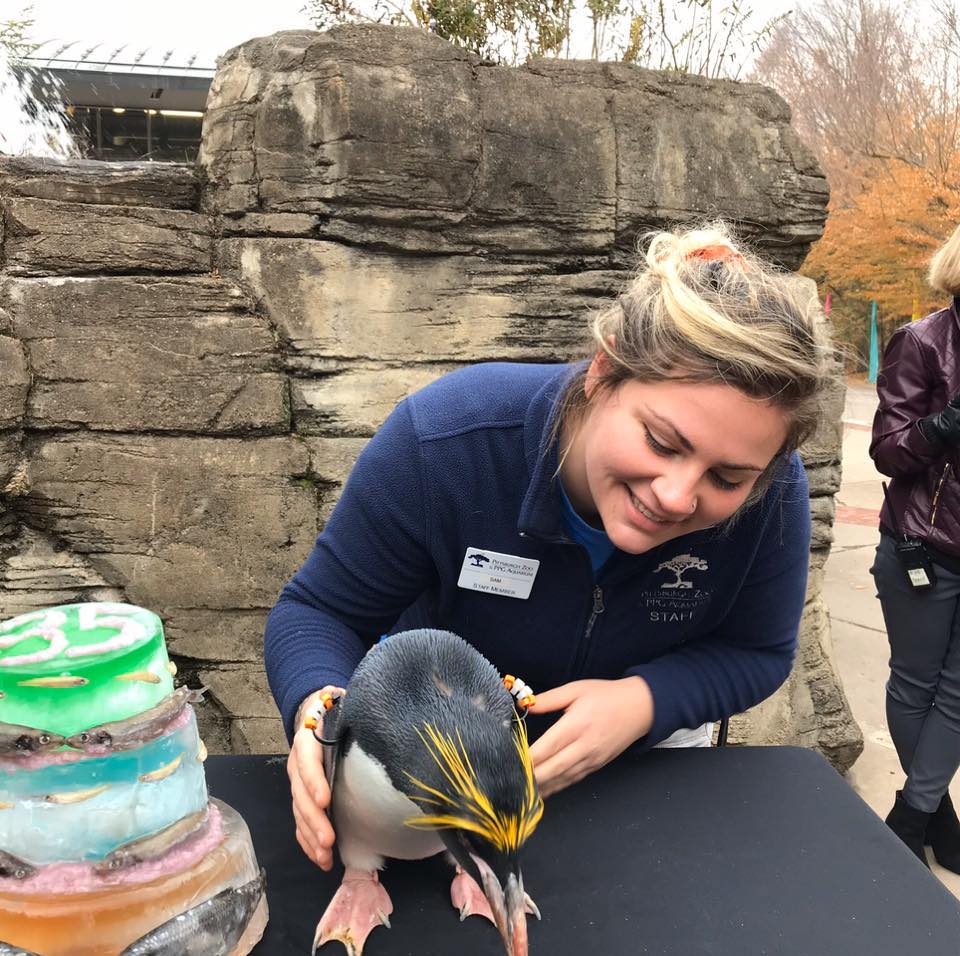 I initially went into Clarion as a B.S. Biology, pre-med major. I realized over time
that I wanted to work more with my hands, be able to travel around, and not work within
a white room for the rest of my life. I ended taking some time off of school and took
a job at Disney World. There I realized that I was more into learning about the new
tropical environment (my first time outside of the northeast) than I was into my job.
I initially went into Clarion as a B.S. Biology, pre-med major. I realized over time
that I wanted to work more with my hands, be able to travel around, and not work within
a white room for the rest of my life. I ended taking some time off of school and took
a job at Disney World. There I realized that I was more into learning about the new
tropical environment (my first time outside of the northeast) than I was into my job.
When I returned home, I knew that I wanted to go back to school and learn as much as I could about something that truly interested me and that was the environment.
The professors I had within the Environmental Biology major completely changed my life. They encouraged me to be better and seek better every day. They also taught me so much valuable information and data collection tactics that I use every day here in Alaska.
I am so grateful for my two close mentors, Dr. Suzanne Boyden and Dr. Andrew Turner, for shaping me into the person and scientist I am today. I can never repay what they have given students like me.
I am currently a North Pacific Observer working mainly out of Dutch Harbor, Alaska. I do work on boats that fish along the Oregon coast as well. Basically, to sum up what I do, I take samples from the commercial fishing boats catch for species composition. Additionally, I collect biological samples such as fin clips, otoliths, pinniped snouts, stomachs, ovaries, and whole fish samples. The National Oceanic and Atmospheric Administration then takes the data and uses it to assess different species stock and how much quota goes out the following year.
If you look up what's happening within the Gulf of Alaska with Pacific Cod, you can see the effects of data collected by observers like me make within a whole fishery. Though I am mainly an observer, I have gotten even more job experience in other fields because of how flexible my schedule is. I am able to work on boats out of northern Washington salmon tendering, and recently I have started to get into aquarist work. Hopefully, I can land a spot in either an Alaskan Aquarium or a marine mammal training program in Hawaii.
While at Clarion, I was involved in Clarion Rugby, Clarion-Limestone and Amphibian Research Center and Clarion's Wildlife Society. Rugby kept me healthy and sane until I could no longer play due to an injury, but mainly my time spent with the Wildlife Society shaped my career goals and the way I looked at my major. I made great contacts within the field of fisheries biology, as well as some forest ecology connections. Ultimately, I went my own way but I definitely could have had a job in those fields had I wanted to. I also learned about some great fishing spots from my peers, most of whom I still talk to today!
Courtney Sutkowski
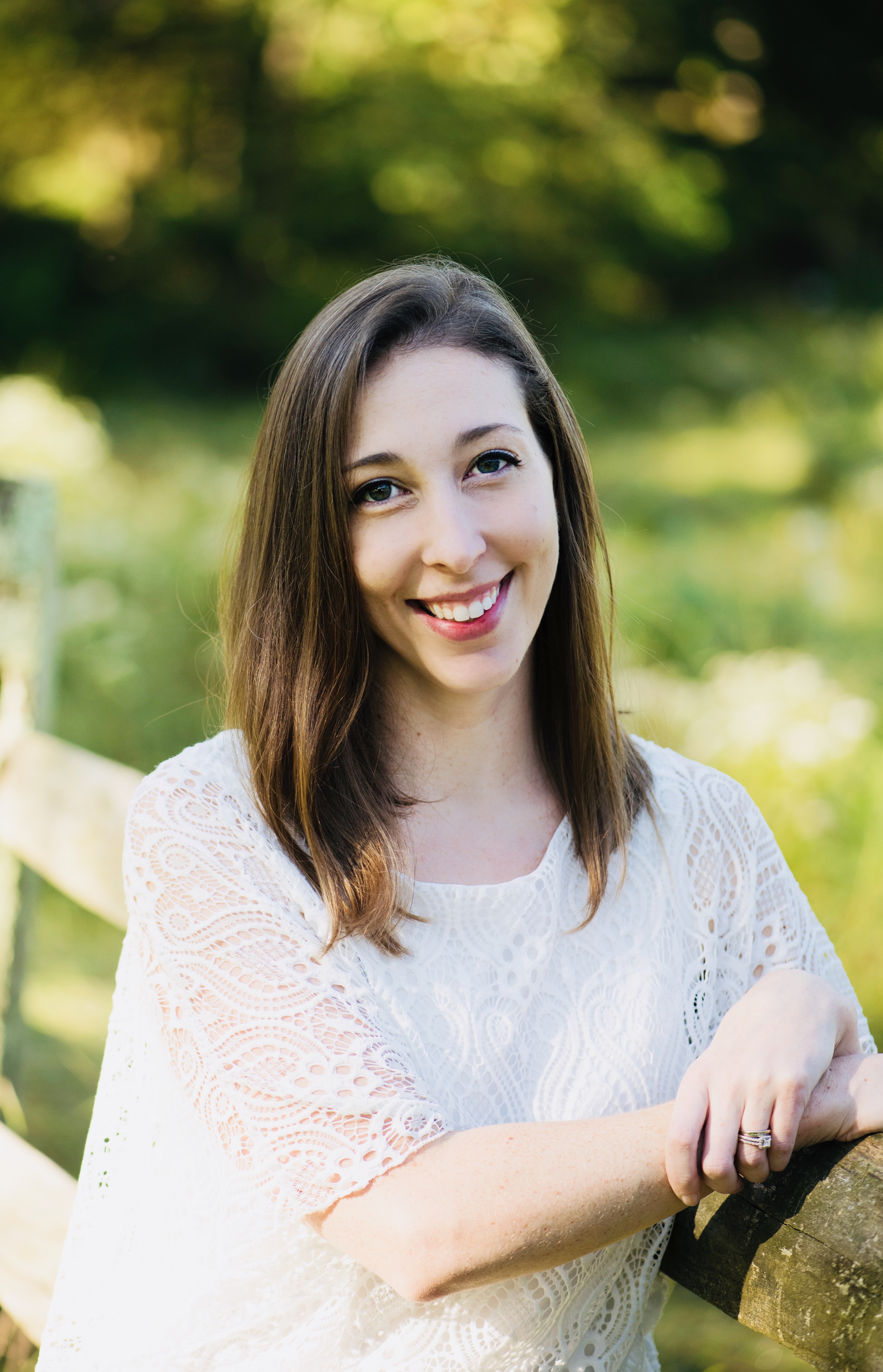 When I first enrolled at Clarion University, it was as a chemistry major. I have always
loved science - specifically biology and chemistry. I knew I wanted to be in a lab.
One day while heading to a class, I walked by a bulletin board with information regarding
the 3+1 medical technology and biology degree program at Clarion. I grabbed a pamphlet,
found the advisor and switched my major that same week. I had no idea that a career
like this one existed where I could combine my love of chemistry, biology, and my
desire to help others. Since that day, I have become tremendously passionate about
laboratory medicine and its impact on patient lives and our healthcare system as a
whole.
When I first enrolled at Clarion University, it was as a chemistry major. I have always
loved science - specifically biology and chemistry. I knew I wanted to be in a lab.
One day while heading to a class, I walked by a bulletin board with information regarding
the 3+1 medical technology and biology degree program at Clarion. I grabbed a pamphlet,
found the advisor and switched my major that same week. I had no idea that a career
like this one existed where I could combine my love of chemistry, biology, and my
desire to help others. Since that day, I have become tremendously passionate about
laboratory medicine and its impact on patient lives and our healthcare system as a
whole.
My biology/medical technology degree has allowed me to pursue many different roles in the laboratory and beyond. Since passing my Medical Laboratory Science boards in September of 2011, I have been a clinical laboratory generalist working in chemistry, hematology, microbiology and blood bank. From there, I launched into a blood bank focus with the American Red Cross in a specialty role to investigate transfusion reactions and then took on an industry role for a large laboratory product distribution company where I was eventually promoted to clinical portfolio director. During that time, I finished my Master of Health Administration as I was able to take advantage of a tuition reimbursement program.
I went on to manage a large laboratory outreach operation for a multi-hospital healthcare system. I oversaw 16 outpatient laboratories, inpatient phlebotomy services, courier phlebotomy services, and logistics for specimen transport. My team consisted of approximately 100 phlebotomists, couriers, logistics, and other support staff. The experience I had at Clarion and during my clinical rotations at an affiliated hospital gave me the experience to be able to be an effective operations manager.
I have worked in every part of the laboratory, have a decade of phlebotomy experience under my belt, and I can utilize my technical laboratory knowledge to troubleshoot the many problems we see daily. I have also been able to mentor my staff and educate other clinicians on proper laboratory techniques, and I was put through the Lean Six Sigma Green Belt program at my organization. (Lean Six Sigma is a widely used form of process improvements that has application in almost all industries but was first developed in manufacturing. It reduces non-value added time in a process to make a product or outcome as efficient as possible.) The project I led to complete my Green Belt resulted in an organization-wide change to reduce the number of daily sticks patients had to endure and eliminate unnecessary blood collection in the middle of the night when patients should be sleeping.
Most recently, my team and I have been instrumental in the COVID pandemic in our community. I led a project to launch a COVID clinic where patients recently discharged could safely have their blood work performed to continue monitoring specific assays that indicate prognosis such as ferritin levels. We have also implemented vast testing in nursing homes, pop-up clinics, and urgent cares in our community where we streamlined the process to collect, transport, and then test thousands of COVID-19 specimens per week.
When I return from maternity leave, I'll be taking on the Clinical Operations Manager position overseeing the blood bank and microbiology departments at my hospital.
I had a tremendous experience at Clarion thanks to incredible professors and a wonderful affiliate medical technology program at WCA Hospital. Dr. Doug Smith was a beacon of inspiration and truly radiated joy in science. But, the biggest impact by far came from Dr. Craig Scott. He was a new professor my sophomore year when I took Cell Biology. He was tough. Very tough. At that same time, I was going through some pretty tremendous personal struggles with my family. I think Dr. Scott saw something in me during a difficult time in my life when others might have passed it off as laziness or a lack of dedication. He took me under his wing, helped me focus on my future, and extended me the opportunity to join his undergraduate research team.
In addition to undergraduate research in molecular biology, I participated in several other programs at Clarion including Habitat for Humanity, Phi Sigma Pi, and the Dean's Scholars Program during my freshman year.
In addition to activities at Clarion, I was also given the opportunity to work at Clarion Hospital as a phlebotomist during my junior and senior years. At that time, the hospital reserved specific positions for med tech students to learn phlebotomy and other basic laboratory skills prior to their 12-month clinical rotation. I learned an incredible amount and was able to gain much needed work experience in the field to add to my resume. I learned phlebotomy techniques, how to obtain arterial blood gas specimens, how to plate microbiology specimens, how to process send out specimens for reference laboratories, and even saw my very first Hairy Cell Leukemia under the microscope.
I am truly in love with what I do. This career path is one of the most impactful on patient lives and probably one of the coolest things I could have chosen to do. The hospital laboratory is the first to see a blood cancer on a microscope, the first to detect an infectious disease, the first to detect bacteria in the bloodstream. Seventy percent of all diagnostic decisions are made based on clinical laboratory results and I feel absolutely blessed to be a part of it. Not only that, but this career path affords tremendous flexibility with many different futures if the hospital laboratory is not for you.
I met my husband at Clarion as well. We took organic chemistry and calculus together sophomore year. We have been married for seven years. We have a 4-year-old son, and we welcomed our daughter in March 2021. They live in Mohnton, Pennsylvania.
Sutkowski received a Platinum Quality Award from her healthcare system for the work she did for COVID-19.